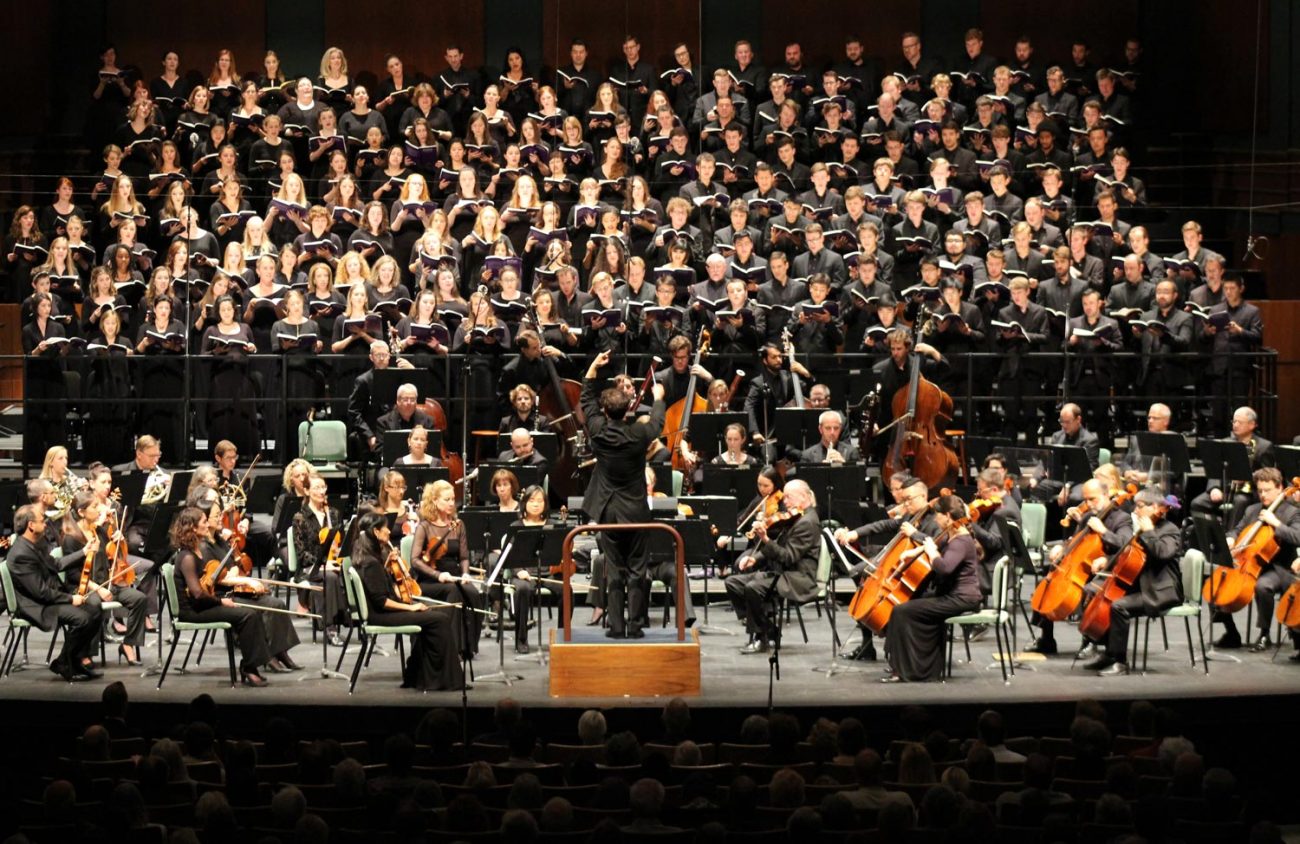Ever since summer 1983, less than a year after Eugene’s Hult Center for the Performing Arts opened for business the previous fall, the Oregon Bach Festival has held its opening concert each year in the Hult’s Silva Concert Hall. Opening night featured festivities in the Hult lobby — often a performance by a children’s choir — followed by a major choral performance in the 2,450-seat Silva.
Not this year. When OBF begins June 29, the first concert, a performance of Bach’s St. Matthew Passion, will be in the University of Oregon’s 520-seat Beall Concert Hall — where the university-owned festival performed after it was founded in 1970.
The change in venue reflects bigger changes at OBF, both in musical focus and in scale.
The most interesting is the festival’s musical shift over the past three years toward what’s called historically informed performance, or HIP.
Founding artistic director Helmuth Rilling interpreted Bach’s choral music — his signature piece was the sprawling B-minor Mass — in a big, Romantic style, with lots of performers and plenty of sound. A Grammy-winning German choral conductor, Rilling had scores of singers on stage; his musicians played on modern instruments that have a louder and more brilliant voice than their historical equivalents.
Rilling gave us the music of Bach, an 18th-century composer, as it was performed in the late 19th and early 20th centuries — in large concert halls to large audiences.
But Rilling retired in 2013 and has been replaced as artistic director by Matthew Halls.
Halls, an Oxford-educated Brit, is a HIP conductor. He likes to perform Bach as scholars tell us the music was done in Bach’s own day. That means smaller choruses and orchestras. In HIP, musicians use either actual historical instruments or modern replicas of historical instruments, both of which have a lighter sound.
The problem for the Bach Festival is that those smaller ensembles and older instruments don’t work very well in a big concert hall like the Hult’s Silva, especially given the hall’s challenging, dry acoustics. So when OBF opened at the Silva last summer with Halls conducting an historically informed performance of the B-minor Mass, the music didn’t come close to filling the room.
“I’ve got hearing aids,” one audience member complained. “And I turned them up. Didn’t help.”
The festival’s new executive director, Janelle McCoy, says putting HIP concerts into Beall Hall, which has excellent acoustics, makes musical sense. “If you want that kind of intimate performance, let’s do it there,” says McCoy, who took over in January 2016.
The other factor behind the move to Beall may be that the festival simply hasn’t been attracting enough people in recent years to fill a hall the size of the Silva.
A report by former OBF executive director John Evans after he abruptly left that post in 2014 said that during the transition from Rilling’s leadership to Halls’, total OBF attendance had plummeted from 44,148 in 2011 to “nearly 20,000” in 2014 — a drop of more than 50 percent.
Last year’s festival, says OBF marketing and communications director Josh Gren, sold almost 15,500 tickets for concerts. That’s a small increase from 2015, when 15,000 were sold. Total attendance in 2016, he said, was 19,300.
Given those twin pressures — musical and financial — moving out of the Hult Center to the UO’s Beall Hall seems natural.
“It doesn’t make sense to take a financial risk [by performing at the Hult Center],” McCoy says. “I don’t want to give people a bad experience.”
Under McCoy, the festival is smaller, tighter and more focused than in previous years.
The brochure for the 2014 festival listed 30 evening performances, seven of them in the Silva. This year’s brochure shows only 13, with three in the Silva. And one of those 13 evening concerts is a repeat, on June 30, of the opening B-minor Mass the night before.
Under Evans, OBF took run-out performances to cities around the state, including Bend, Corvallis, Newport and Portland. Sometimes the festival offered three performances on the same night, in different cities.
No more.
“When we took events up to Portland, it didn’t encourage people to come down here,” McCoy says. “I just didn’t see the return on investment.”
McCoy and Halls have not thrown out the grander choral performances that previous audiences came to hear. You’ll just have to wait until the middle of the 17-day festival to hear them. “It’s like two festivals,” McCoy says. “As the festival progresses, the instruments become more modern.”
On July 8, Lars Ulrik Mortensen, artistic director of Concerto Copenhagen and the 2000 Danish Musician of the Year, will conduct the big Handel oratorio Hercules in the Silva. And the festival will close, also in the Silva, on July 15, with Beethoven’s Missa Solemnis, conducted by Halls.
“This is an educational process,” McCoy says. “The audience has had so many decades of those lush, almost Romantic performances that Helmuth did. Now we’re on new ground.”
OBF 2017 runs June 29 to July 15. Find more information at oregonbachfestival.com.
